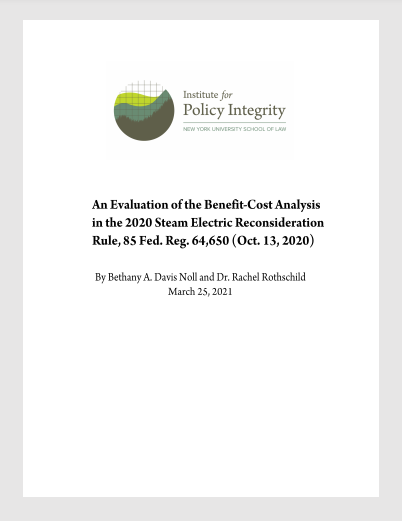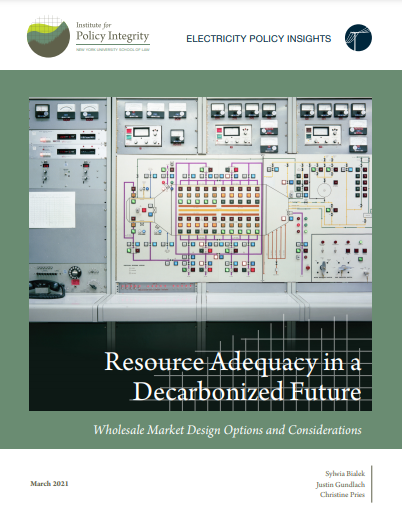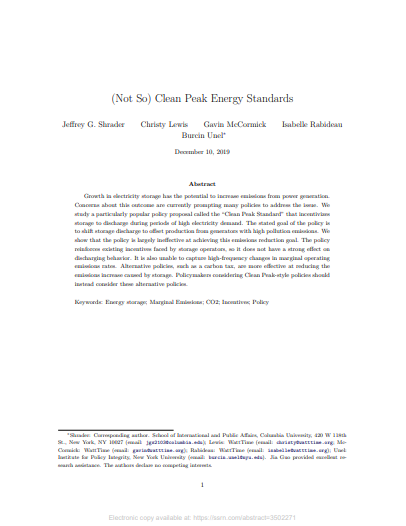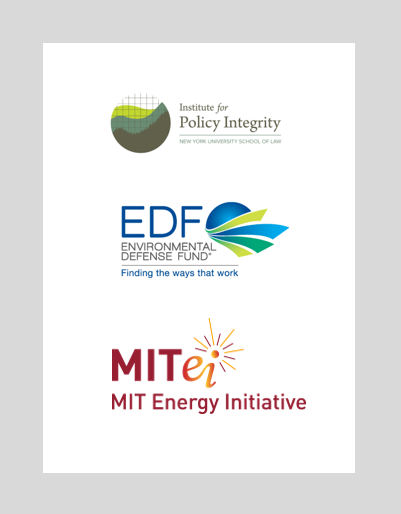The Institute for Policy Integrity produces a variety of publications. Our research reports develop in-depth research on our core issues, while our policy briefs and issue briefs provide focused analysis on more timely or particular topics. Our academic articles and working papers offer original scholarly research and analysis from established experts as well as fresh new voices.
Latest Publications
-
An Evaluation of the Benefit-Cost Analysis in the 2020 Steam Electric Reconsideration Rule
85 Fed. Reg. 64,650 (Oct. 13, 2020)
In its analysis of the 2020 Steam Electric Reconsideration Rule, the Environmental Protection Agency failed to adequately provide quantitative estimates for numerous harms from steam electric power plants' wastewater streams and drew conclusions about the rule’s impacts that are undermined by a fair assessment of unquantified impacts. Our report identifies flaws in the 2020 Rule and details changes the agency can make to significantly improve its benefit-cost analysis.
-
Resource Adequacy in a Decarbonized Future
Wholesale Market Design Options and Considerations
This report examines the relationship between resource adequacy and renewable energy. It explores the impacts of renewables on the functioning of resource adequacy mechanisms and how different resource adequacy approaches affect renewable investment, finding that current approaches—with certain adjustments—are capable of ensuring that the lights stay on during a future that is powered largely by renewable energy.
-
(Not So) Clean Peak Energy Standards
Growth in electricity storage has the potential to increase emissions from power generation. Concerns about this outcome are currently prompting many policies to address the issue. We study a particularly popular policy proposal called the “Clean Peak Standard” that incentivizes storage to discharge during periods of high electricity demand. The stated goal of the policy is to shift storage discharge to offset production from generators with high pollution emissions. We show that the policy is largely ineffective at achieving this emissions reduction goal. The policy reinforces existing incentives faced by storage operators, so it does not have a strong effect on discharging behavior. It is also unable to capture high-frequency changes in marginal operating emissions rates. Alternative policies, such as a carbon tax, are more effective at reducing the emissions increase caused by storage. Policymakers considering Clean Peak-style policies should instead consider these alternative policies.
-
Retail Electricity Tariff Design, Distributed Energy Resources, and Emissions
In this paper, we use an economics-engineering simulation model to analyze how different types of residential retail tariff designs such as time-of-use, critical-peak pricing, and fully cost-reflective tariffs affect DER deployment and use, and, hence, the resulting emissions of CO2, SO2, and NOx in the Commonwealth Edison service territory in Chicago. Our results show that in the short term retail tariffs can help or hinder environmental goals through their effect on DER deployment and consumption behavior, emphasizing the importance of pairing DER policy initiatives with decarbonization efforts at the wholesale electricity level.
-
The Role of Electricity Tariff Design in Distributed Energy Resource Deployment
This paper simulates the effect of more advanced residential electricity tariffs on household adoption of distributed energy resources (DERs). We find that tariffs that are more time variant lead to greater reductions in coincident peak demands than flat volumetric tariffs, both from load shifting as well as from adoption of DERs. Regarding the effect of electricity tariff design on DER investments, we find that at current DER purchase costs investments in rooftop photovoltaic (PV), batteries and natural gas distributed generators are not privately optimal under any of our tariff design scenarios based on current cost levels for electricity and gas in the Chicago study area.




